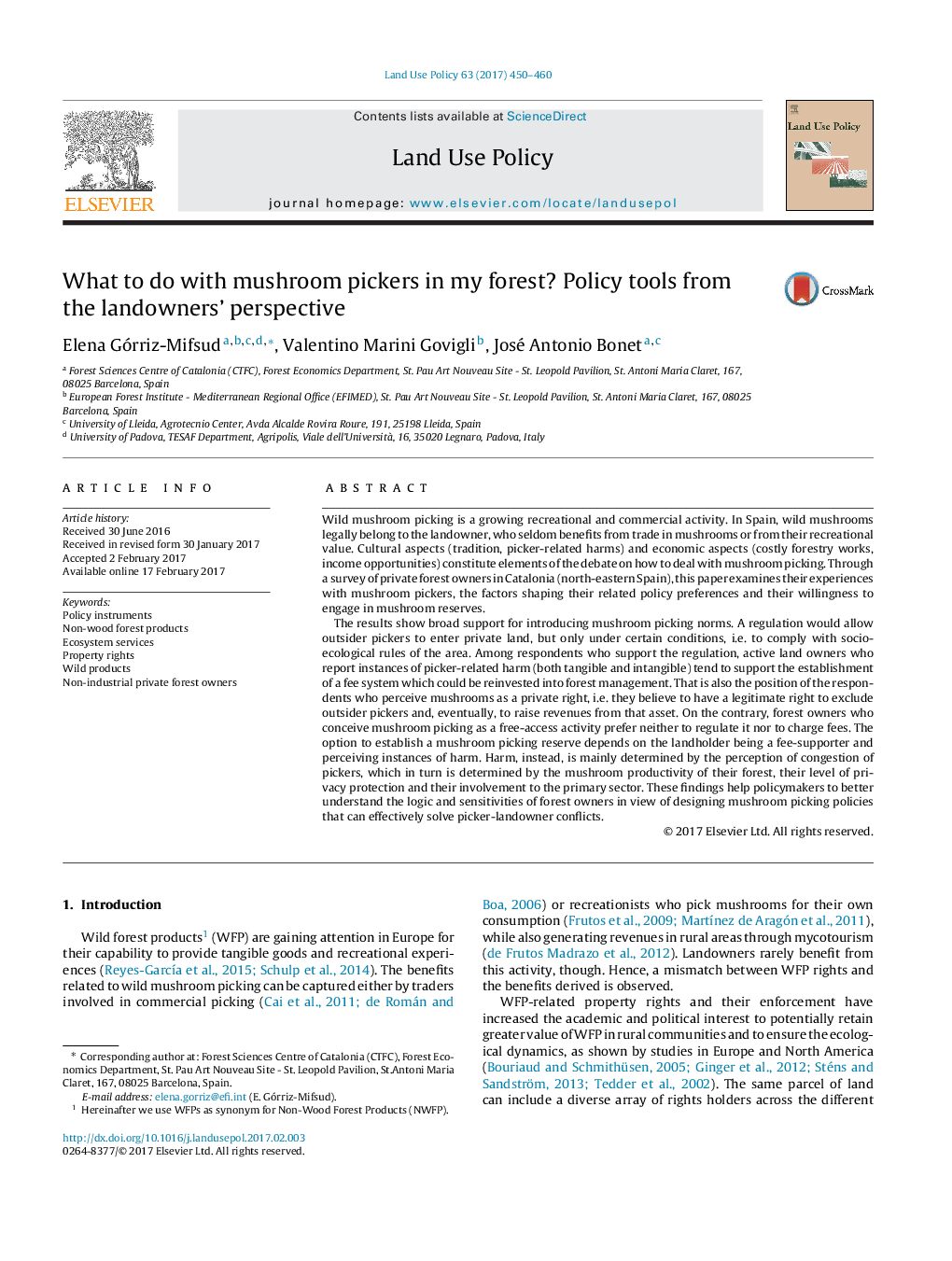| کد مقاله | کد نشریه | سال انتشار | مقاله انگلیسی | نسخه تمام متن |
|---|---|---|---|---|
| 6461051 | 1421820 | 2017 | 11 صفحه PDF | دانلود رایگان |
- Opinions of private forest owners on mushroom picking policies are analysed.
- Perception of property rights and of picker-related nuisances determine their policy preferences.
- Nuisances and private mushroom picking right predisposes towards a regulation, a picking fee and a mushroom reserve.
- Nuisances are mainly driven by congestion of pickers, related to mushroom productivity.
Wild mushroom picking is a growing recreational and commercial activity. In Spain, wild mushrooms legally belong to the landowner, who seldom benefits from trade in mushrooms or from their recreational value. Cultural aspects (tradition, picker-related harms) and economic aspects (costly forestry works, income opportunities) constitute elements of the debate on how to deal with mushroom picking. Through a survey of private forest owners in Catalonia (north-eastern Spain), this paper examines their experiences with mushroom pickers, the factors shaping their related policy preferences and their willingness to engage in mushroom reserves.The results show broad support for introducing mushroom picking norms. A regulation would allow outsider pickers to enter private land, but only under certain conditions, i.e. to comply with socio-ecological rules of the area. Among respondents who support the regulation, active land owners who report instances of picker-related harm (both tangible and intangible) tend to support the establishment of a fee system which could be reinvested into forest management. That is also the position of the respondents who perceive mushrooms as a private right, i.e. they believe to have a legitimate right to exclude outsider pickers and, eventually, to raise revenues from that asset. On the contrary, forest owners who conceive mushroom picking as a free-access activity prefer neither to regulate it nor to charge fees. The option to establish a mushroom picking reserve depends on the landholder being a fee-supporter and perceiving instances of harm. Harm, instead, is mainly determined by the perception of congestion of pickers, which in turn is determined by the mushroom productivity of their forest, their level of privacy protection and their involvement to the primary sector. These findings help policymakers to better understand the logic and sensitivities of forest owners in view of designing mushroom picking policies that can effectively solve picker-landowner conflicts.
Journal: Land Use Policy - Volume 63, April 2017, Pages 450-460
